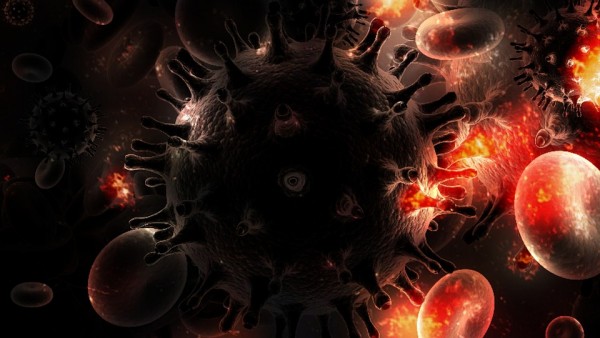By ivan wanjiku, | January 26, 2017

The ability of the HIV virus to mutate makes it particularly tricky to tame.
If they do not get access to antiretroviral drug treatment, the majority of people infected with HIV ultimately develop AIDS, as the virus evolves beyond the body's ability to control it.
However, there is a small group of people, called elite controllers, who possess immune systems capable of defeating the HIV virus.
Like Us on Facebook
The elite controllers achieve this by manufacturing elite broadly neutralizing antibodies, which have the ability to take down multiple forms of the HIV virus.
Now a study using antibodies from one of these elite controllers has shown that a combination of three such antibodies can completely suppress the virus in HIV-infected mice.
"Some people with HIV produce these antibodies, but most of the time the virus eventually escapes them through mutations in the antibody's corresponding epitope," said postdoctoral fellow Natalia Freund, one of the authors of the study.
The epitope is part of the virus that antibodies recognize and attach themselves to. However, the ability of the HIV virus to mutate makes it particularly tricky to tame.
The ability of the HIV virus to mutate also ensures that once the virus is introduced into the body, people remain infected forever. This is one of the biggest roadblocks to developing immune therapies to overcome the HIV virus.
According to Freund, the relationship between the antibodies is like an arms race. Through mutation, some of the virus may evade the antibodies and continue developing. Years later, the body may produce new broadly neutralizing antibodies against the escaped virus, which in turn may mutate and escape again.
Freund says that their study shows that after several rounds of escaping from these antibodies, the HIV virus finally seems to run out of options, and loses the arms race.
In the study, the patient whose HIV response created antibodies for the research had been working with the team for 10 years, contributing his blood serum for the study.
The patient was infected with the HIV virus thirty years ago. In that period, he has developed three types of broadly neutralizing antibodies that bind to three different sites on the HIV virus.
The three antibodies seem to complement each other, completing shutting down the HIV virus.
-
Use of Coronavirus Pandemic Drones Raises Privacy Concerns: Drones Spread Fear, Local Officials Say

-
Coronavirus Hampers The Delivery Of Lockheed Martin F-35 Stealth Fighters For 2020

-
Instagram Speeds Up Plans to Add Account Memorialization Feature Due to COVID-19 Deaths

-
NASA: Perseverance Plans to Bring 'Mars Rock' to Earth in 2031

-
600 Dead And 3,000 In The Hospital as Iranians Believed Drinking High-Concentrations of Alcohol Can Cure The Coronavirus

-
600 Dead And 3,000 In The Hospital as Iranians Believed Drinking High-Concentrations of Alcohol Can Cure The Coronavirus

-
COVID-19: Doctors, Nurses Use Virtual Reality to Learn New Skills in Treating Coronavirus Patients







